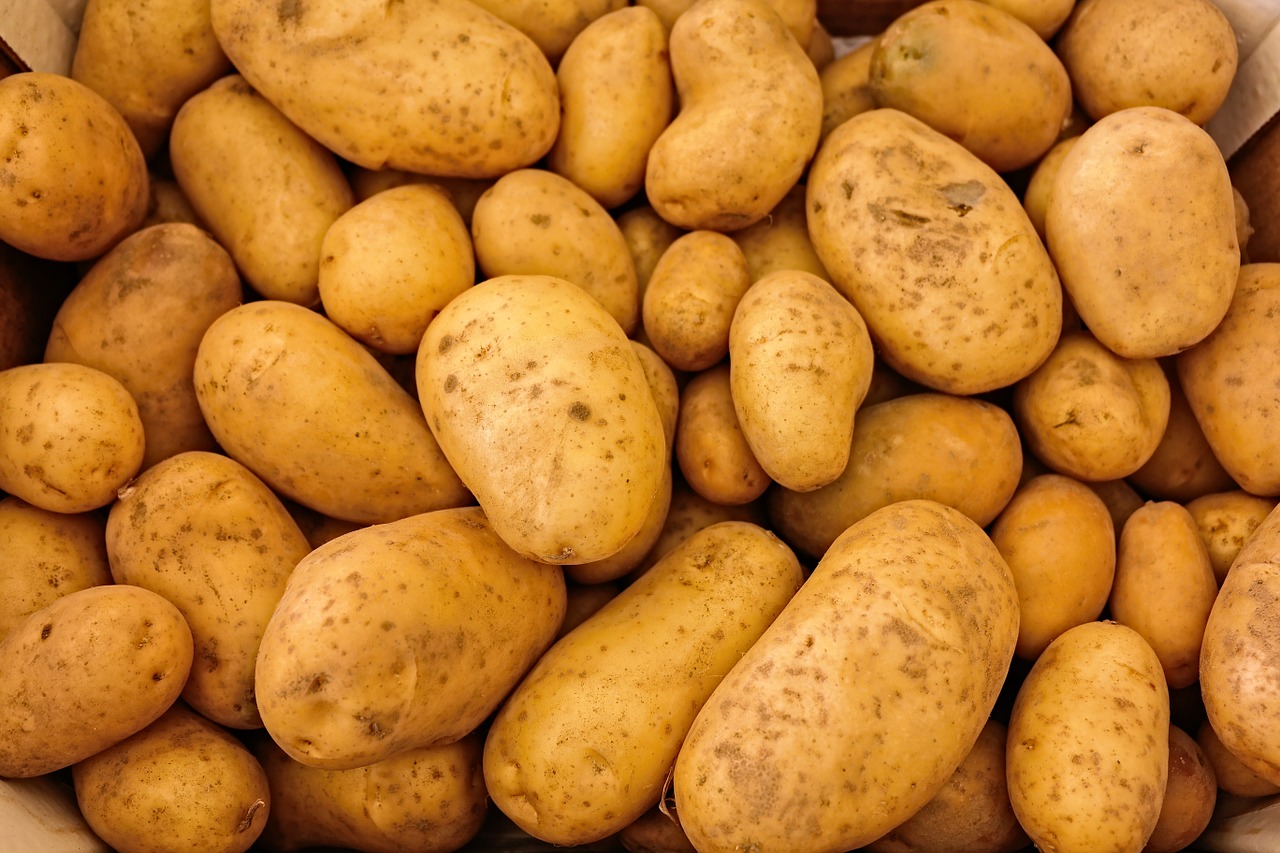Over recent years, the use of biostimulants such as Algifol to improve and protect potato crops has increased significantly.
Potatoes are one of the most widely grown and consumed crops globally, providing a significant portion of the world’s food supply. However, potato cultivation faces numerous challenges, including susceptibility to diseases, pests, and extreme weather, such as heavy rainfall and drought. Biostimulants are proven to improve potato growth, yield, and resilience while reducing dependency on chemical fertilisers and pesticides.
What Are Biostimulants?
Biostimulants are substances or microorganisms that stimulate natural growth processes and improve the plant’s ability to cope with environmental stresses when applied to plants or soils. Unlike conventional fertilisers or pesticides, biostimulants do not directly supply nutrients. Instead, they enhance the plant’s physiological functions, improve nutrient uptake, stimulate root development, and boost its defence mechanisms against stress.
Biostimulants come in two forms. They can be like Aligfol and composed of natural products. Algifol is made from seaweed extracts and contains humic acids, amino acids and natural growth regulators. Some other biostimulants are made from humic substances, amino acids, and plant growth regulators, or beneficial microorganisms like fungi and bacteria. These components work synergistically to improve plant health, productivity, and resilience without contributing to the environmental pollution often associated with synthetic agricultural inputs.
How Biostimulants Improve Potato Growth
Enhanced Stress Tolerance
Potatoes are vulnerable to a variety of abiotic stresses, including drought, heat, and soil salinity. These stresses can significantly reduce crop yield and quality. Biostimulants help improve the plant’s ability to resist or recover from these stressors.
Seaweed-based biostimulants, such as Algifol, have been shown to activate the plant’s stress-response mechanisms, enhancing the potato’s ability to cope with drought by improving water retention in the soil and the plant’s root system.
Improved Nutrient Uptake and Efficiency
Effective nutrient management is crucial for potato growth, but the crop often faces challenges in absorbing nutrients, particularly in nutrient-deficient or poorly structured soils. Biostimulants enhance nutrient uptake by promoting root development and improving the soil’s biological activity.
By improving nutrient-use efficiency, biostimulants can increase potato yields while reducing the need for excessive synthetic fertilisers, which helps to lower production costs and minimise environmental impact.
Root System Development
The health and development of a plant’s root system are critical for its overall growth and resilience. Biostimulants encourage root proliferation by stimulating the production of root growth hormones, leading to a more extensive and deeper root network.
This is particularly beneficial for potatoes, as a robust root system enables the plant to access water and nutrients more efficiently, especially during periods of water stress or in low-fertility soils. By encouraging better root architecture, biostimulants can also improve tuber development, leading to higher yields and improved crop quality.
Increased Photosynthesis and Biomass Production
Biostimulants can also enhance photosynthetic efficiency in potatoes, leading to improved growth and productivity. Seaweed extracts, for instance, have been shown to increase chlorophyll content in potato leaves, enhancing the plant’s ability to capture sunlight and produce energy for growth.
Potatoes can produce more biomass with increased photosynthetic activity, resulting in larger, healthier plants and higher tuber yields. This increased biomass production is critical for the plant’s ability to store starch, which directly influences tuber size and quality.
Enhanced Disease Resistance
Biostimulants can boost the plant’s immune system by stimulating the production of secondary metabolites and defence-related proteins. These compounds help potato plants defend themselves against common diseases, such as late blight (*Phytophthora infestans*), which can severely affect yield and quality.
For example, certain biostimulants derived from seaweed extracts and beneficial microorganisms have been shown to enhance the potato plant’s resistance to diseases by inducing systemic acquired resistance (SAR), a form of plant immunity that provides enhanced protection against pathogens. Biostimulants can reduce the need for chemical pesticides by promoting disease resistance, contributing to more sustainable farming practices.
Improved Tuber Quality
In addition to boosting yield, biostimulants can also improve the quality of potatoes. Biostimulants help optimise tuber development, ensuring they grow uniformly and attain the desired size. By improving plant health and nutrient utilisation, biostimulants can enhance the overall nutritional profile of potatoes, increasing their market value.
Furthermore, biostimulants have been shown to reduce the incidence of common post-harvest problems, such as bruising and sprouting. These improvements in tuber quality are significant for growers targeting high-value markets that demand superior-quality potatoes.
We hope this short overview of how biostimulants improve potato crops has been useful. If you’d like to know more about Algifol, please don’t hesitate to contact Marcus on 07702 293 727 or email [email protected]

